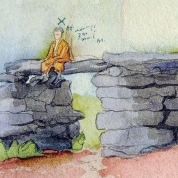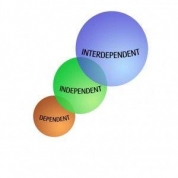 | Attendere prego... |
Schede casuali
|
bookingevents.it Dipinti di Alfred Hitler Alfred Hitler pantings 7 Putting technique in the service of man's well-being Properties caratteristiche formali, segni distintivi, inclusione o esclusione, sentimenti associati, inibizioni, stimolazioni, volontà associate, conoscenza assuciate Populismo Condividere con me le loro cose  Miss England Convert HTML to PDF in PHP the Easy Way alla gullibility Cosa pensava Kant del piacere (ChagtGPT) Immanuel Kant, un influente filosofo della fine del XVIII secolo, aveva una visione molto specifica e complessa del piacere, che differiva notevolmente da quella di filosofi come Epicuro o John Stuart Mill. La filosofia di Kant era centrata sull'etica e sulla razionalità, piuttosto che sul piacere come obiettivo della vita umana. Ecco alcuni aspetti chiave del pensiero di Kant sul piacere:
In sintesi, Kant non negava il valore o l'importanza del piacere nella vita umana, ma sosteneva fermamente che il piacere non dovrebbe essere il principio guida nella determinazione dell'azione etica. Per lui, l'etica è fondata sulla ragione e sul dovere, non sul piacere o sulla felicità personale. sei stupido creating Cominc relief - The healing power of humor Cosa sa l'uomo dell'uomo? Guida spirituale immaginazione Google download Homburg (Spotify) Conflict (process) grove boschetto miei sentimenti verso gli altri  Annie Leibovitz 3 it.wikipedia.org/wiki/Problematicismo carinho affetto Illudere persone  Helmut Newton 27 paura di trasformarsi health MediaLog (cataloghi e scambi di DVD, CD, Libri) Chi sostenere What is Secular Humanism? Accettazione, inclusione guardare un video i miei errori environment paura di essere isolato con chi interagire? Blockchain (WIkiedia English) Doveri  Dipinti di Alfred Hitler Alfred Hitler pantings 29 The flute in Latin Jazz  Diane Arbus 30 Cosa mi fa ridere Paolo Virno: sulla natura dell’animale loquace Dalla parte di Giobbe. Dio, la ragione il male in Lev Šestov  Sinusoide Modelli What do Customers Want from On-demand Food Delivery Platforms? Today’s consumer has higher expectations. Not to mention, they are busier and rely heavily on apps to make their everyday activities easier. “With the slow growth in the economy and real job growth many are forced to work two or more jobs. When restaurant delivery services or delivery of prepared meals are available the convenience factor is going to be attractive and offer viable relief,” said Bill Bender, FCSI consultant and founder & principal of W.H. Bender & Associates, a restaurant & food-service consulting firm. With that being said, convenience is key. But, consumers are also more interested in higher quality food options. Thanks
More Details GDPR, tutto ciò che c’è da sapere per essere in regola What am I hiding? Dormire con persone Appropriarmi di  Three Stages of Wisdom Blues sullaletteratura.blogspot.it/2018/04/un-italiano-nel-maggio-68-parigi-ovvero.html Religione Polyvore card 86 http://www.cancellieri.org/galleries/roma/small/pict0648 cortile roma courtyard rome.jpg Circolo  Sebastião Salgado Photographs 16 essere libero di cambiare come desidero gelosia...  Surprise party p From Humanism to Neohumanism passive waiting What is Psychoanalysis? Part 1: Is it Weird? (video) accusare Cambiamenti behance.net Il bisogno di riconoscimento e come soddisfarlo  Alessandro Barbero No Passalongs mobile / immobile vinonuovo.it quanto mi fa schifo? cose a cui non mi piace pensare Domande sulle interazioni Burraco News per trovare amici con i quali giocare a Burraco Internet Radio radioguide.fm tunein.com radiomap.eu vtuner.com Umanesimo esistenzialista (Sartre) 5 x 2 10  Cubi che sembrano muoversi Disapprovarmi it.wikipedia.org/wiki/Marco Guzzi Bass Clarinet and Flute Jazz Duet - 'Hobo Blues' - Differenze di cultura museo MACRO Quanto mi approvano/disapprovano? BR 24 L'uomo è una fune sospesa tra l'animale e il superuomo, — una fune sopra l'abisso. Abitudini simili Conditions for acceptance, examinations personality change How much do I understand others? colmare le mie lacune |